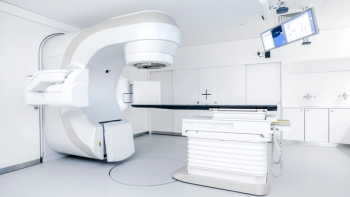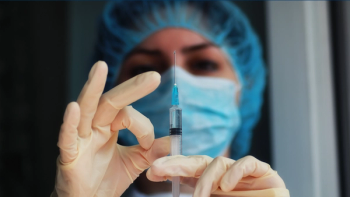
Nurses can be empowered to advocate for methylene blue therapy as an effective oral mucositis pain relief treatment.

Nurses can be empowered to advocate for methylene blue therapy as an effective oral mucositis pain relief treatment.

Data from a single-institution study showed that 98.6% of their patients with head and neck cancer experienced oral mucositis.

Melanie Taylor, APRN, and Mark Lin, APRN, share how they optimize strategies in caring for patients with lymphedema.

Incorporating frailty screenings into preexisting workflows may be an effective way to provide more holistic care to patients with head and neck cancer.

The FDA has approved toripalimab, with cisplatin and gemcitabine, and as a monotherapy, to treat adults with nasopharyngeal carcinoma.

The median progression-free survival was not reached with selpercatinib vs 16.8 months with other kinase inhibitors.

Thyroid carcinoma is recognized as one of the most uncommon forms of cancer.

Many Americans with health insurance are not fully covered for frontline procedures to treat lymphedema—a debilitating condition that often affects patients with cancer.

Shawna Douglas, a head and neck nurse navigator, weighs in on the unique needs of this patient population.

Shawna Douglas, BSN, RN, discusses the role that nurse navigators play in caring for patients with head and neck cancer.

Selpercatinib led to improved progression-free survival in patients with advanced or metastatic RET-mutant medullary thyroid cancer.

The FDA has issued a complete response letter to the new drug application for avasopasem manganese to manage oral mucositis in patients with locally advanced head and neck cancer undergoing radiation.

ASP-1929, an antibody-dye conjugate, plus pembrolizumab, induced a 29.4% overall response rate in patients with recurrent or metastatic head and neck squamous cell carcinoma.

Patients with oropharyngeal squamous cell carcinoma who received primary radiotherapy or surgery demonstrated similar long-term patient-reported outcomes.

Manufacturers are pulling the pralsetinib indication for patients with medullary thyroid cancer. It is still under investigation as a treatment option for patients with non–small cell lung cancer.

Elizabeth R. Cullen, MSN, ARNP, talks severe oral mucositis management for patients with locally advanced head and neck cancer.

Meredith Cummings, BSN, RN, OCN, discusses the potential benefit of machine learning in predicting symptoms for patients with head and neck cancer.

Meredith Cummings BSN, RN, OCN, highlights her research on machine learning and its potential application in optimizing symptom management.

Sintilimab plus chemoradiotherapy was associated with better event-free survival rates in locally advanced nasopharyngeal carcinoma than chemoradiotherapy alone.

Elizabeth R. Cullen, MSN, ARNP, provides an overview of avasopasem manganese and its potential role in reducing severe oral mucositis for patients undergoing radiotherapy.

Research published in JAMA Oncology suggest that acute radiation dermatitis may be the result of a common skin bacterium and prevented with a low-cost topical treatment.

Elizabeth R. Cullen, MSN, ARNP, highlights the efficacy of avasopasem manganese in mitigating severe oral mucositis in patients with locally advanced head and neck cancer.

Ashley Marenyi, RN, BSN, OCN, highlights the importance of counseling patients with head and neck cancer on the short-term and long-term adverse effects of radiation treatment.

An estimated 54.5% of adolescents in the United States have received the recommended doses of the HPV vaccine, although the government established a goal of an 80% vaccination rate in this population.

Patients with head and neck squamous cell carcinoma continued to displayed a survival benefit with pembrolizumab at a 4-year follow-up.